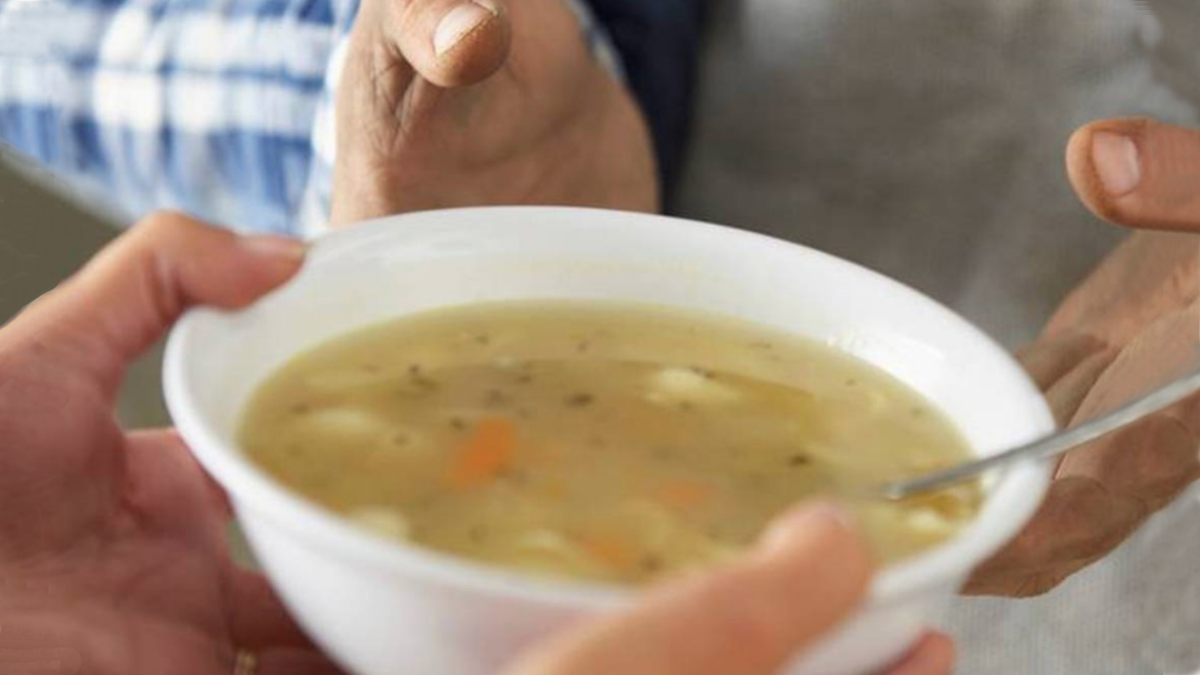Adam Pine’s new book, Confronting Hunger in the USA: Searching for Community Empowerment and Food Security in Food Access Programs, evaluates four Duluth food delivery programs for people experiencing food insecurity and discusses access to healthy food for all citizens. He doesn’t just discuss theory, Adam describes the activities in detail.
“Arriving at Ruby’s Food Pantry on a freezing cold winter afternoon is like stepping out of your everyday life and into a giant performance of generosity,” Adam writes. He describes a volunteer “dressed in snow pants, goggles, and an enormous winter coat” with “icicles hanging off his beard as he directs traffic in the parking lot.” Adam lets the reader in on the action, “a forklift brings pallets of food from a semitrailer into a brightly lit gymnasium for distribution.” He tells of “women wearing red Ruby’s Pantry T-shirts [who make] sure new volunteers sign in and put on nametag.”
Adam recalls the “church leaders, boy scouts, and volunteer groups from all over Duluth ... lining the gymnasium with tables of food.” At Ruby’s Pantry, one of the four food programs compared in the book, people fill a laundry basket and for $20 dollars get about $100 worth of food.
Adam is the director of UMD’s Urban and Regional Studies program. He has dedicated years to researching food security in our country and the conflicting issues of food surplus and hunger. His book compares SHARE, Ruby’s Food Pantry, the CHUM Food Shelf, and Seeds of Success, all community-based food programs. “The book is about more than food security,” says Adam, “it’s about how to make people come together to solve problems.”
While he is an advocate for the programs, he’s quick to point out there are advantages and disadvantages. “Ruby’s Food Pantry does wonderful things, but it can be disempowering for people to buy leftover food,” Adam says. “SHARE was a buying club for people to buy discounted groceries, but it couldn’t compare to the discounts of stores like Walmart.” CHUM serves 6,000 people a year, but struggles to find ways to solve long-term problems. The fourth group, Seeds of Success, is a community garden that teaches people to grow their own food in a sustainable manner, but it only serves a handful of people while about 13% of the U.S. population experience food insecurity each year.
The book points out that state and federal food programs do an insufficient job of taking care of hunger, and community-based food programs go a long way to demonstrate new relationships between food and society. Adam steps back from programs and takes a critical look at how community-based food programs address the problem of food insecurity. Often the sense of belonging among the volunteers is stronger than in the program participants, and that also takes away an opportunity for community organizing.
While no Duluth program is perfect, Adam still raves about the support he sees, “Duluth is a fantastic community to live in because so many people care,” Adam says. “We have so many more food programs than I could have imagined.”
As the book came together, UMD students were given an opportunity to become involved. Adam, an associate professor in the Department of Geography, Urban, Environment & Sustainability Studies, and his wife Rebecca de Souza, an associate professor in the Department of Communication, used their students as resources for some of the research in the book.
For some students, the work turned into Undergraduate Research Opportunity Projects (UROPs). “Rebecca trained students to interview and collect data, so our students could be apart of the research,” Adam says. “Some of my students did UROPs on food security, and others entered data into our research database.”
Confronting Hunger in the USA offers a lot to digest and Adam insists the overarching issue is empowerment. “Whether that be money, transportation, or resources to get the things you need,” he says, “food scarcity deals with how empowered you are.”
The book was published in January 2017 by Routledge, Milton Park, Oxfordshire, UK and New York, NY, U.S.
Visit the Department of Geography, Urban, Environment & Sustainability Studies website.

